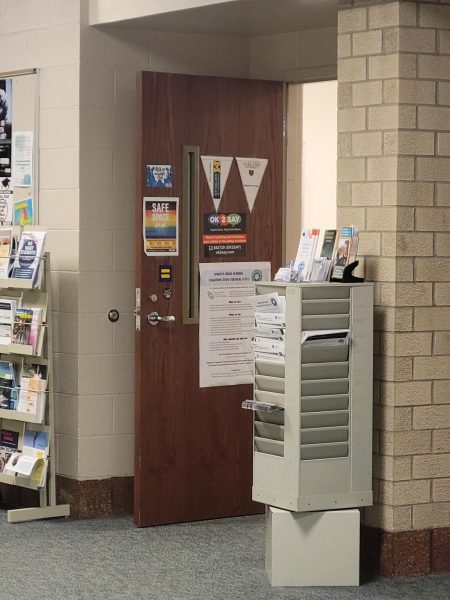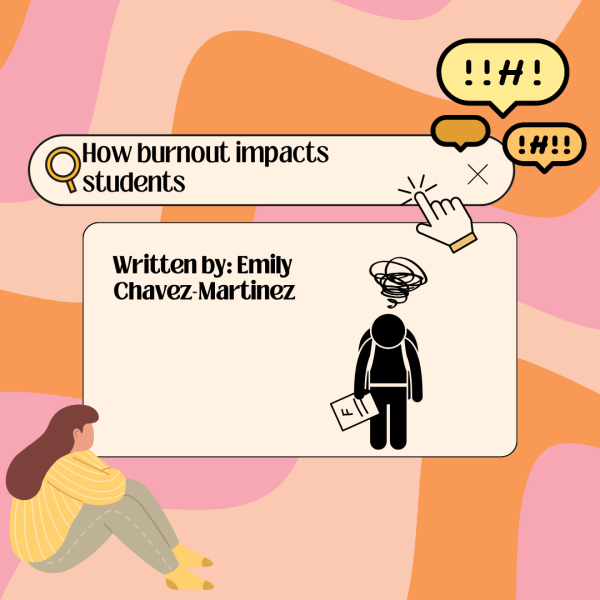Has Quarantine changed the way students function during in-person schooling?

“My 9th grade English class tries to comport itself” -By Ana Arabbo
Introduction
The COVID-19 pandemic was a period of time where the world shut down completely, leaving thousands of schools across the country scrambling for a distantly connected solution while quarantine kept students in their homes. This led to the sudden increase of online learning, a system that brought flexibility and ease to the average school day. Though a perfect idea on paper, many students are still reeling back from their bad habits formed over quarantine.
In March 2020 when schools officially decided to move to online schooling, many students had the ability to go on apps such as Microsoft Teams or Google Classroom to simulate what it would be like to go to classes. Since students weren’t directly in class and had the option to turn their cameras off, they could walk away from the screen or not follow along with the teacher when they instructed, leading to the harmful habit of procrastination.
Procrastination
Procrastination is the habit of putting off tasks until the last minute possible to complete, a harmful pattern Jennifer Vonk, an Academic Editor for the National Library of Medicine wrote in a telling excerpt. She explains in the article the different ways procrastination has been studied, a piece including procrastination in academics. Vonk refers to the studies and informs how “academic procrastination is a consequence of a self-regulation deficit in students.”
“Instead of doing work during the normal school times I would be doing it later at night,” says Chloe Hilgendorf, a senior at Dakota High school. She felt that most assignments “got pushed to the side during quarantine” and led her into a constant state of hurry to get work in on time.
Vonk also provides insight as to why students are falling so behind by explaining how “students could only study online given the imposed lockdowns, thus providing a more favorable context to procrastinate.”
Erin Angeles, another student at Dakota high School expressed that she “treated the assignments as optional.” For students attending Dakota High School in March of 2020, the work that was given had been credit for participation assignments meaning that you could answer one question to every single one but as long as you turned it in, it would still get credit. Erin during the pandemic felt as though she didn’t have to do her assignments purely because she felt that her “teachers won’t look at it.” And Erin isn’t the only one. Students from other schools shared just as much lack of motivation for online schooling.
“During class online I would always watch videos while the teacher was speaking or playing games,” Lordina Twum, a current attendee of Athens High School confessed. She felt as though during that time, she was able to pay attention less and “can’t really do that now.”
Studying Habits
Another bad habit that students accumulated over quarantine was the failure to study. An online survey conducted by BMC Public Health concluded that “90% of the respondents have been affected by the shutdown and unable to perform normal work or studies at their institution for between 1 week to 2 months.” A current attendee at Dakota High School backs up this data and claims that they “forgot how to study.” Due to tests being all online, for this high schooler, all it took was a switch to another browser and google to find the answers to all of their tests. The student believes they didn’t have the motivation to study because they “really didn’t have to during quarantine” and that they “still struggle with it.”
Increased Social Anxiety
Despite online schooling altering academic lives, it also played a hand in altering social lives as well. University of South Florida’s Psychiatry expert worries that “Increased cases of Social Anxiety Disorder may be a lasting legacy of the COVID-19 pandemic.”
“It’s definitely affected my communication skills,” says Twum. She explained that as someone who was normally a very outgoing person in school, coming back years later to the busy hallways became more intimidating than exciting. “I get more nervous to put my input into classes,” she adds, “whereas in freshman year, I was always raising my hand.”
Decrease in Performance as a Student
Some high schoolers had more of an issue with putting their effort into assignments. Many studies show that there is a direct correlation with the decrease in work ethic and COVID-19.
Fellow Senior and student at Dakota High School Veronica Jakosalem confesses that during quarantine she “was severely underperforming as a student.” Ever since schools opened back up for in-person learning, Jakosalem feels “like I’m (she’s) still doing that.”
Your donation will support the student journalists of Dakota High School. Your contribution will allow us to purchase equipment and cover our annual website hosting costs.

Melina is a senior at Dakota High School entering her first and final year of being a journalist in the semi-famous newspaper, The Dakota Planet. Outside...














